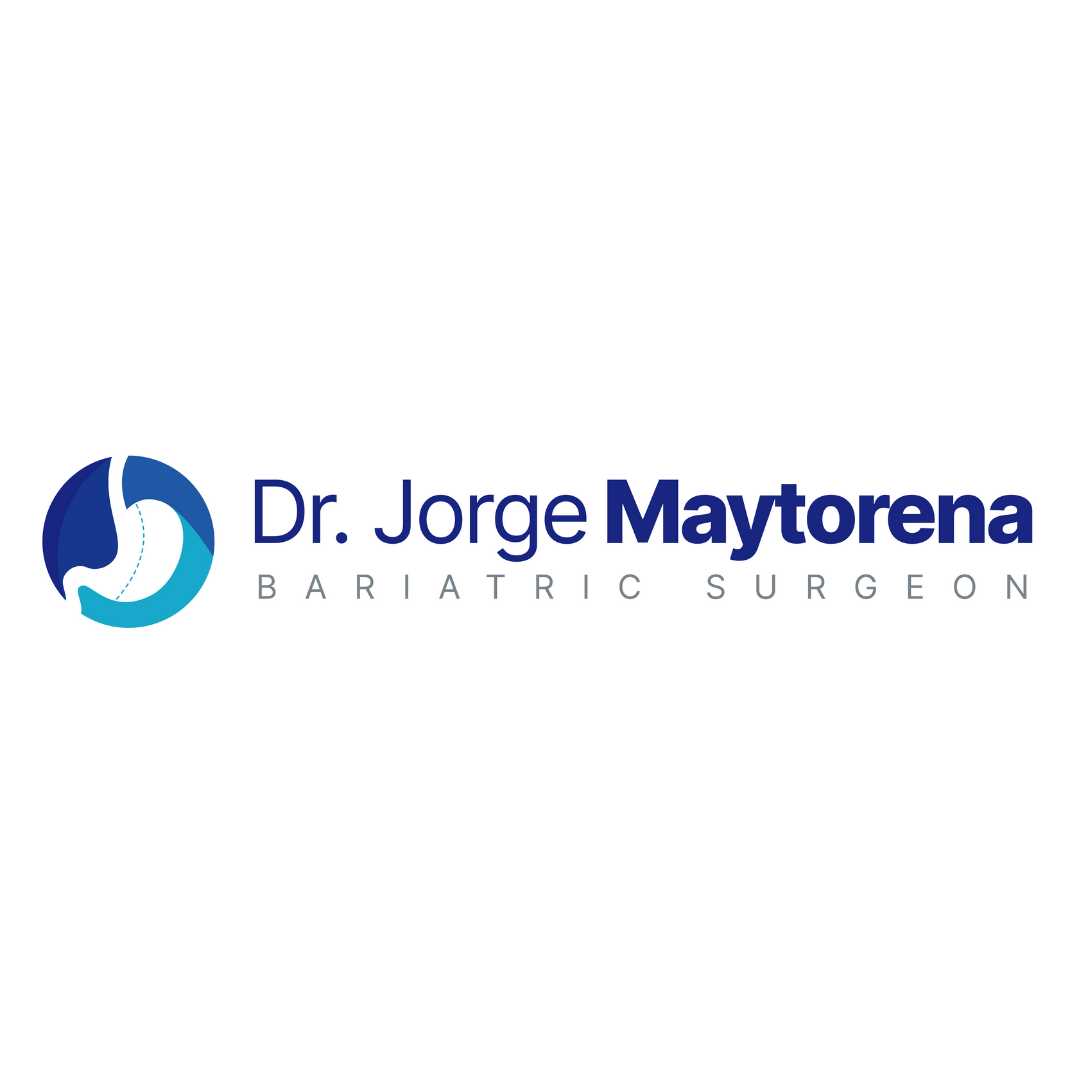Gastric Bypass Revision in Mexico: Your Path to Renewed Weight Loss and Health

For many individuals, gastric bypass surgery is a life-changing procedure that leads to significant weight loss and improved health. However, like any complex medical intervention, it isn't always a permanent solution for everyone. Sometimes, despite initial success, a gastric bypass may "fail" to deliver long-term results or may lead to new, challenging complications. When this happens, a revisional bariatric surgery, specifically a gastric bypass revision, can offer a second chance at achieving health goals and improving quality of life.
Mexico has emerged as a leading global destination for bariatric surgery, including these intricate revisional procedures. Patients from the United States, Canada, and other parts of the world are increasingly choosing Mexico for its combination of highly skilled surgeons, state-of-the-art facilities, and significantly more affordable costs. But what exactly does it mean for a gastric bypass to "fail," and what are the options for revision in Mexico?
This comprehensive guide will explore the possibility of undergoing a gastric bypass revision in Mexico. We'll delve into the common reasons why a primary gastric bypass might need revision, outline the various types of revisional procedures available, discuss their typical costs and success rates, and highlight crucial factors to consider when choosing a surgeon and clinic in Mexico for such a complex operation. Our aim is to provide you with detailed, reliable information to help you navigate this important decision.
Why might a gastric bypass need revision?
A gastric bypass is a powerful tool for weight loss and metabolic improvement, but its long-term success can be influenced by various factors. When a primary gastric bypass doesn't achieve the desired outcomes or leads to new problems, a revision becomes necessary. Here are the most common reasons why patients might seek a gastric bypass revision:
- Insufficient Weight Loss: This occurs when the patient does not lose at least 50% of their excess body weight within 18-24 months after the initial surgery. This can be due to:
- Anatomical issues: The gastric pouch or the connection (anastomosis) between the pouch and the small intestine may have stretched over time, allowing the patient to consume larger portions of food.
- Behavioral factors: Not adhering to post-operative dietary guidelines, excessive grazing, consuming high-calorie liquids, or insufficient physical activity.
- Weight Regain: Many patients experience excellent initial weight loss, but over time, they begin to regain a significant portion of the lost weight. This is often a result of:
- Pouch or Stoma Dilation: The small gastric pouch created during the bypass or the stoma (the opening from the pouch to the small intestine) can stretch and enlarge. This reduces the restrictive effect of the surgery, allowing for larger food intake.
- Malabsorptive Limb Adaptation: Over time, the bypassed sections of the small intestine can adapt, leading to increased nutrient absorption and less effective malabsorption.
- Dietary indiscretion: Slipping back into old eating habits, consuming calorie-dense foods, or grazing frequently.
- Medical Complications: Some patients develop chronic or severe complications directly related to the altered anatomy from the gastric bypass. These can include:
- Severe Gastroesophageal Reflux Disease (GERD): Persistent and debilitating heartburn or reflux.
- Marginal Ulcers: Ulcers that form at the connection point between the stomach pouch and the small intestine, causing pain, bleeding, or perforation.
- Stomal Stenosis/Stricture: A narrowing of the opening between the gastric pouch and the small intestine, leading to difficulty eating, nausea, vomiting, and dehydration.
- Chronic Abdominal Pain: Pain that may be related to adhesions, internal hernias, or other anatomical issues.
- Nutritional Deficiencies: While common with bypass, severe or unmanageable deficiencies that cause significant health problems.
- Internal Hernia: A serious complication where a portion of the intestine becomes trapped in a small opening within the abdomen, leading to severe pain and potential bowel obstruction.
- Gastric-Gastric Fistula: An abnormal connection that forms between the small gastric pouch and the bypassed, larger remnant stomach, allowing food to bypass the restrictive and malabsorptive elements.
- Intolerance to the Procedure: In some cases, patients find they cannot tolerate the side effects or restrictions of the gastric bypass, such as chronic dumping syndrome, severe nausea, or frequent vomiting.
Regardless of the reason, a comprehensive evaluation by an experienced bariatric surgeon is essential to determine if a revision is appropriate and what type of procedure would offer the best outcome.
What types of gastric bypass revision surgeries are available in Mexico?
Mexican bariatric surgeons are highly proficient in a range of revisional procedures for gastric bypass, allowing them to tailor the approach to the specific reason for the revision. These surgeries are generally more complex than primary bariatric operations due to the altered anatomy and presence of scar tissue.
Here are some of the common types of gastric bypass revision surgeries performed in Mexico:
- Gastric Bypass to Gastric Bypass Revision (Pouch and/or Stoma Reduction):
- Purpose: This is typically performed when the original gastric pouch or the gastrojejunal anastomosis (stoma – the opening connecting the pouch to the small intestine) has stretched or dilated, leading to weight regain or insufficient weight loss.
- Procedure: The surgeon will reduce the size of the enlarged gastric pouch and/or narrow the stretched stoma. This can sometimes be done endoscopically using techniques like Transoral Outlet Reduction (TORe), or surgically through laparoscopy. In some cases, the Roux limb (the segment of the small intestine connected to the pouch) might also be lengthened to enhance malabsorption.
- Expected Outcome: A renewed sense of restriction and satiety, leading to further weight loss.
- Gastric Bypass to Duodenal Switch (BPD/DS) Conversion:
- Purpose: This is a more aggressive revisional option often considered for patients with significant weight regain or those who need a more powerful metabolic effect, especially if they have severe uncontrolled diabetes.
- Procedure: This involves a complex conversion. It essentially reverses parts of the gastric bypass and then performs elements of a duodenal switch. This usually includes resizing the gastric pouch, altering the small intestinal connections to create a longer bypassed limb and a shorter common channel, leading to much greater malabsorption.
- Expected Outcome: Very substantial additional weight loss and significant improvement or resolution of metabolic conditions like Type 2 Diabetes. This is a higher-risk procedure.
- Transoral Outlet Reduction (TORe) / Endoscopic Suture Plication:
- Purpose: This minimally invasive, endoscopic procedure is specifically for patients who have experienced weight regain due to a dilated gastrojejunal anastomosis (stretched stoma) after gastric bypass.
- Procedure: Performed endoscopically through the mouth, sutures are used to reduce the diameter of the stretched stoma, thereby restoring a more restrictive opening. There are no external incisions.
- Expected Outcome: Restoration of restriction, leading to renewed weight loss. It's less invasive than surgical revisions but may offer less dramatic weight loss than a BPD/DS conversion.
- Lap-Band over Gastric Bypass:
- Purpose: In some cases of weight regain, a laparoscopic adjustable gastric band may be placed around the gastric pouch to add an extra layer of restriction.
- Procedure: A silicone band is surgically placed around the upper portion of the gastric pouch.
- Expected Outcome: Increased restriction and satiety, leading to further weight loss. This option is less commonly performed now compared to other revisional techniques.
The choice of revisional surgery is highly individualized and depends on the specific anatomical issue, the patient's overall health, and their weight loss goals. A thorough diagnostic workup, including imaging studies (e.g., upper GI series, endoscopy), is essential to determine the most appropriate revisional strategy.
What is the cost of gastric bypass revision surgery in Mexico?
One of the primary reasons patients choose Mexico for revisional bariatric surgery, including gastric bypass revision, is the substantial cost savings compared to countries like the United States or Canada. Despite the lower price, Mexican clinics often offer high-quality care, state-of-the-art facilities, and board-certified surgeons.
The cost of gastric bypass revision surgery in Mexico can vary based on the complexity of the revision, the specific clinic, the surgeon's experience, and what's included in the package. However, you can generally expect prices to range from $6,500 to $10,000 USD.
This cost is notably lower than in the US or Canada, where a gastric bypass revision could easily cost upwards of $20,000 to $30,000, and often much more if not covered by insurance.
What's typically included in the cost in Mexico:
- Surgeon's Fees: Covering the expertise of the bariatric surgeon performing the complex revisional procedure.
- Anesthesiologist's Fees: For the administration and monitoring of anesthesia during surgery.
- Hospital Stay: Typically 1-3 nights in a private room at a modern, accredited hospital.
- Pre-operative Tests: Essential diagnostic tests such as blood work, ECG, and chest X-rays.
- Post-operative Care: Including medications administered in the hospital, and often a leak test to ensure surgical integrity.
- Medical Tourism Package: Many Mexican bariatric centers offer all-inclusive packages designed for international patients. These often cover:
- Airport transfers and ground transportation.
- Accommodation in a hotel for a specified number of nights before or after surgery.
- Translator services (if needed).
- Dietitian and psychological consultations (pre and post-op).
- Access to patient support groups.
What might be an additional cost:
- Travel Expenses: Flights to and from Mexico.
- Extended Stay: If complications arise or if you choose to stay longer than the package allows.
- Specific Diagnostic Imaging: More advanced pre-operative imaging like upper endoscopy or CT scans might be an additional charge if not covered in the standard package.
- Long-term Nutritional Supplements: Ongoing vitamin and mineral supplements are a lifelong requirement after bypass revision.
When obtaining quotes, it's crucial to get a detailed breakdown of what is and isn't included to ensure full transparency and avoid unexpected expenses.
What are the success rates of gastric bypass revision surgery in Mexico?
The success of gastric bypass revision surgery, whether performed in Mexico or elsewhere, is measured by several outcomes, including significant additional weight loss, resolution or improvement of complications, and overall enhancement of health and quality of life. Mexico's reputable bariatric centers report competitive success rates for these complex procedures.
It's important to understand that "success" for revision surgery differs from primary surgery. For revisions, success often means achieving further weight loss from the current weight, resolving medical issues, or preventing further weight regain.
- Weight Loss Success:
- Patients undergoing gastric bypass revision, particularly those with a stretched pouch/stoma, can expect to lose an additional 50% to 70% of their remaining excess weight within 12 to 24 months after the revision.
- For more aggressive revisions, such as conversion to a Duodenal Switch, the weight loss can be even more substantial, often leading to a further 60-80% of excess weight loss.
- The rate and amount of weight loss vary significantly based on the specific revisional procedure performed, the patient's initial BMI, adherence to dietary and exercise guidelines, and the presence of any underlying metabolic issues.
- Resolution of Complications:
- One of the key success metrics for revision surgery is the resolution or significant improvement of medical complications that prompted the revision. For instance, revisions aimed at correcting severe reflux, ulcers, or strictures often have high success rates in alleviating these symptoms.
- Improvement in Co-morbidities:
- Similar to primary bariatric surgery, revision surgery can lead to significant improvement or even remission of obesity-related health conditions such as Type 2 Diabetes, hypertension, sleep apnea, and high cholesterol.
Factors influencing success:
- Type of Revision: More complex procedures like a conversion to Duodenal Switch generally yield greater weight loss but also come with higher risks.
- Patient Adherence: Long-term success is heavily dependent on the patient's commitment to strict dietary changes, regular exercise, and lifelong vitamin and mineral supplementation.
- Surgeon Expertise: Revisional bariatric surgery is significantly more challenging than primary surgery. Choosing a highly experienced surgeon with a proven track record in complex revisions is paramount to success and safety.
- Comprehensive Support: Clinics that offer robust pre- and post-operative support, including nutritional counseling, psychological evaluation, and ongoing follow-up, tend to have better patient outcomes.
While revision surgery carries higher risks than primary surgery, for carefully selected patients, it can be a highly effective way to achieve renewed weight loss and address debilitating complications.
What are the risks associated with gastric bypass revision surgery in Mexico?
While gastric bypass revision surgery offers significant benefits for patients who have experienced a failed primary bypass, it is crucial to understand that these procedures carry inherent risks, which are often higher than those of initial bariatric surgeries. This increased complexity is due to operating on previously altered anatomy and the presence of scar tissue from the initial surgery.
Here are some of the potential risks and complications associated with gastric bypass revision surgery:
- Increased Surgical Risks:
- Anastomotic Leaks: A higher risk of leakage at the reconnected areas of the stomach or intestines compared to primary surgery. This is a severe complication requiring immediate intervention.
- Bleeding: Increased risk of intraoperative or post-operative bleeding.
- Infection: Risk of surgical site infection or internal infections.
- Blood Clots: Deep vein thrombosis (DVT) or pulmonary embolism (PE), though preventative measures are taken.
- Complications from Anesthesia: Standard risks associated with general anesthesia.
- Long-term Gastrointestinal Complications:
- Strictures (Narrowing): A higher likelihood of developing a stricture at the surgical connection points, leading to difficulty eating, nausea, and vomiting, often requiring endoscopic dilation.
- Marginal Ulcers: Continued or new formation of ulcers at the connection site.
- Internal Hernias: A serious risk where loops of intestine can slip through gaps created by previous surgery, leading to obstruction and requiring emergency surgery. This risk can persist years after the revision.
- Dumping Syndrome: Exacerbation or new onset of dumping syndrome (rapid emptying of stomach contents into the small intestine), causing symptoms like nausea, vomiting, diarrhea, sweating, and dizziness after eating certain foods.
- Chronic Abdominal Pain: Persistent pain due to adhesions or other anatomical changes.
- Nutritional Deficiencies:
- Revision surgeries, especially those that increase malabsorption (like conversion to Duodenal Switch), carry a higher risk of severe and long-term deficiencies in vitamins and minerals (e.g., B12, iron, calcium, vitamin D). Lifelong, rigorous supplementation and monitoring are absolutely critical.
- Failure to Achieve Desired Weight Loss: While the goal is improved weight loss, there's still a possibility that the revision might not lead to the expected amount of weight loss, especially if behavioral factors are not fully addressed.
- Longer Recovery Time: Due to the complexity and potential for increased scar tissue, the recovery period for a revision surgery can sometimes be longer and more challenging than the initial bypass.
It is paramount to choose a highly experienced bariatric surgeon in Mexico who specializes in revisional procedures. A thorough pre-operative evaluation, including imaging and endoscopy, is essential to minimize risks and ensure the most appropriate procedure is selected. Patients must also be committed to lifelong follow-up care and nutritional guidance.
Who is a candidate for gastric bypass revision in Mexico?
Not everyone who has had a gastric bypass and is struggling with their weight or experiencing issues is an automatic candidate for revision surgery. A comprehensive evaluation is necessary to determine suitability, considering the added complexity and risks of a second bariatric procedure.
Here are the general criteria and common reasons that make someone a candidate for gastric bypass revision in Mexico:
- Failed Weight Loss or Significant Weight Regain:
- Insufficient Weight Loss: If the patient did not achieve at least 50% of their excess body weight loss within 18-24 months of the primary gastric bypass.
- Significant Weight Regain: If the patient initially lost weight but then regained a substantial amount (typically 25-50% or more of their maximum weight loss) over time. This is often linked to a dilated gastric pouch or stoma.
- BMI Criteria: While specific BMI requirements vary by clinic and the type of revision, patients typically still have a high BMI (e.g., 30-35 or higher, often with co-morbidities, or a BMI over 40) that warrants surgical intervention.
- Intractable Complications: Revision is also indicated for patients suffering from severe and persistent complications related to their original gastric bypass that significantly impact their health and quality of life, and which cannot be managed through less invasive means. These include:
- Severe, chronic, and unmanageable Gastroesophageal Reflux Disease (GERD).
- Recurrent or persistent marginal ulcers.
- Severe strictures (narrowing) of the anastomosis causing persistent nausea, vomiting, or difficulty eating.
- Internal hernias or other anatomical issues causing chronic pain or bowel obstruction.
- Gastric-gastric fistula (an abnormal connection between the pouch and remnant stomach).
- Severe, debilitating dumping syndrome or chronic malnutrition not responsive to dietary changes and supplementation.
- Commitment to Lifestyle Changes: Crucially, candidates must demonstrate a strong commitment to adopting and maintaining significant, lifelong dietary and lifestyle changes, including adherence to a strict diet, regular exercise, and vitamin supplementation. A psychological evaluation is often required to assess readiness and understanding of the demands of revision surgery.
- Overall Health Status: Patients must be in good enough health to undergo another major surgery. This involves a thorough medical clearance, including cardiac and pulmonary evaluations.
- Previous Surgical History: The type of previous bariatric surgery and any complications from it will be carefully reviewed.
A qualified bariatric surgeon in Mexico will conduct a detailed assessment, including reviewing your medical records, performing diagnostic tests (like endoscopy, upper GI series), and conducting a psychological evaluation, to determine if you are a suitable candidate for a gastric bypass revision and which specific procedure is best for you.
How to choose a reputable surgeon and clinic for gastric bypass revision in Mexico?
Choosing the right surgeon and clinic for a gastric bypass revision in Mexico is perhaps the most critical decision you will make. Revisional surgery is more complex and carries higher risks than primary bariatric procedures, making the surgeon's expertise and the clinic's facilities paramount.
Here’s a guide to help you choose a reputable surgeon and clinic:
- Surgeon's Qualifications and Experience:
- Board Certification: Ensure the surgeon is board-certified in general surgery and, ideally, also in bariatric/metabolic surgery. Look for certifications from recognized Mexican and international boards.
- Experience with Revisional Surgery: This is crucial. Ask about their specific experience with gastric bypass revisions. How many have they performed? What is their success rate and complication rate for these complex cases? Revisional surgery requires a different skill set than primary procedures.
- Specialization: Choose a surgeon who specializes in bariatric surgery and regularly performs revisional procedures.
- Continuing Education: Verify that the surgeon actively participates in bariatric surgery conferences and stays updated on the latest techniques and research.
- Team Expertise: A good surgeon is part of a multidisciplinary team. Ensure the clinic has experienced anesthesiologists, dietitians, and nurses specializing in bariatric care.
- Clinic/Hospital Accreditation and Facilities:
- Accreditation: Look for hospitals that are accredited by recognized international bodies (e.g., JCI - Joint Commission International) or reputable national Mexican health organizations. This ensures adherence to high safety and quality standards.
- Dedicated Bariatric Program: Choose a clinic with a specialized bariatric surgery program, not just a general hospital.
- Infrastructure: Ensure the facility is modern, clean, and well-equipped with an Intensive Care Unit (ICU) and appropriate surgical technology for complex procedures.
- Patient Safety Protocols: Inquire about their emergency protocols and how they manage potential complications.
- Transparency and Communication:
- Clear Communication: The clinic and surgeon should be transparent about all aspects of the procedure, including risks, benefits, expected outcomes, and the recovery process.
- Detailed Cost Breakdown: Request a comprehensive, written quote that outlines all inclusions and potential additional costs (medications, extended stay, specific diagnostics).
- Pre- and Post-operative Support: A reputable clinic will offer robust pre-operative evaluations (medical and psychological) and comprehensive post-operative follow-up, including nutritional guidance and access to support groups. Ensure you understand their plan for your long-term care.
- Responsiveness: Assess how quickly and thoroughly they respond to your inquiries. Good communication before surgery is a strong indicator of patient care.
- Patient Testimonials and Reviews:
- Look for independent reviews on platforms like Google, Facebook groups dedicated to medical tourism or bariatric surgery in Mexico, and online forums. Pay attention to both positive and negative experiences, particularly regarding revisional surgery.
- Ask the clinic for references or to connect you with former patients who have undergone similar revisions.
- Travel and Logistics:
- Consider the logistical support offered (airport pickup, accommodation, translators). A well-organized medical tourism package can significantly reduce stress.
Taking the time to thoroughly research these points will help you select a safe, reputable, and effective option for your gastric bypass revision in Mexico.
Explore PlacidWay for solutions related to medical tourism, healthcare services, or other relevant offerings.


.png)














Share this listing